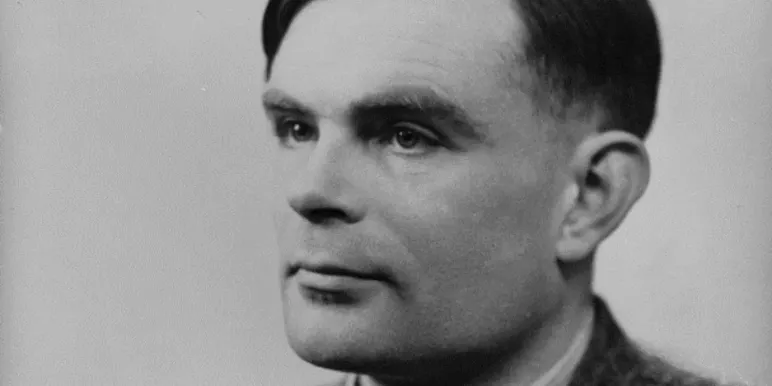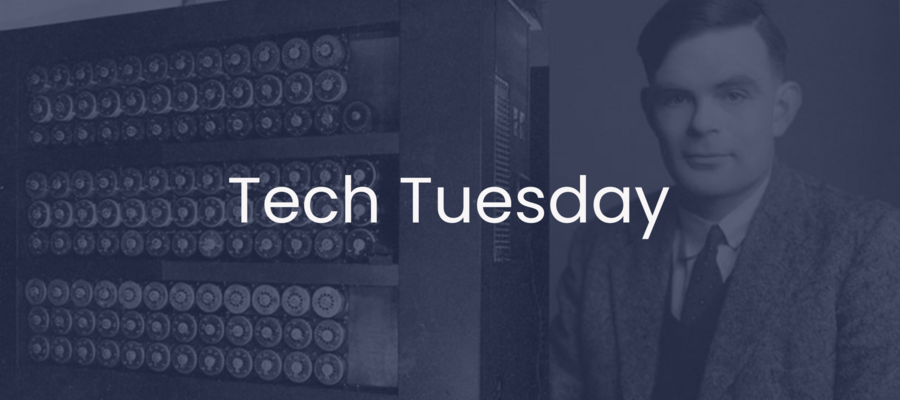The theme of this year’s LGBTQ+ History Month is medicine, celebrating the work and lives of LGBTQ+ people who worked in and made significant contributions to the field.
We’re shining the spotlight on Alan Turing, notable for his accomplishments across computer science, mathematics, biology, and cryptography. These accomplishments have rippled through to the medical industry, if not every industry to some extent.
Alan Turing is widely regarded as one of the most brilliant minds of the 20th century.
Some of his most pioneering work includes the creation of the “Turing Machine”, a mathematical model which can simulate the logic of any computer algorithm. This is said to be the beginning of the modern computer.
Working as a cryptanalyst during World War 2, he co-created a device called the “Bombe”, which helped decrypt the Enigma Code being used by the German Armed Forces. It ultimately helped British Allies pick up on German intelligence, accelerating the end of the war and saving many lives in the process.
Another of his greatest achievements is the “Turing Test”, which determines a machine’s capability of thinking like a human; this is very influential in the development of AI.

Despite his lifetime of incredible work, Turing’s life had a tragic ending. He was arrested and prosecuted for “gross indecency” when authorities discovered he was gay, which was illegal in 1952.As an alternative to being imprisoned, he chose probation and accepted hormone treatment – known as chemical castration.
This conviction also removed Turing’s security clearance, meaning he could no longer work within the government. Subsequently, he lost his job and the projects he was working on.
By age 41, he committed suicide by consuming cyanide which he’d injected into an apple. Often labelled the ‘father of computer science’, Turing’s story has raised awareness and support for the LGBTQ+ community. A lot of his accolades have been bestowed posthumously.
To tie into this year’s theme of medicine, Turing’s influence has had a ripple effect through many industries including healthcare. Thanks to Turing’s contributions, computers can categorise molecular data from biological samples to determine the root cause of disease. This is one example of many: the computer has revolutionised medicine and healthcare.
Turing’s legacy is a powerful one; his contributions to science, technology and society at large are significant and long-lasting.
This LGBTQ+ Month is an excellent opportunity to learn more about the incredible contributions made to the Tech & Digital space by pioneers in the industry.

